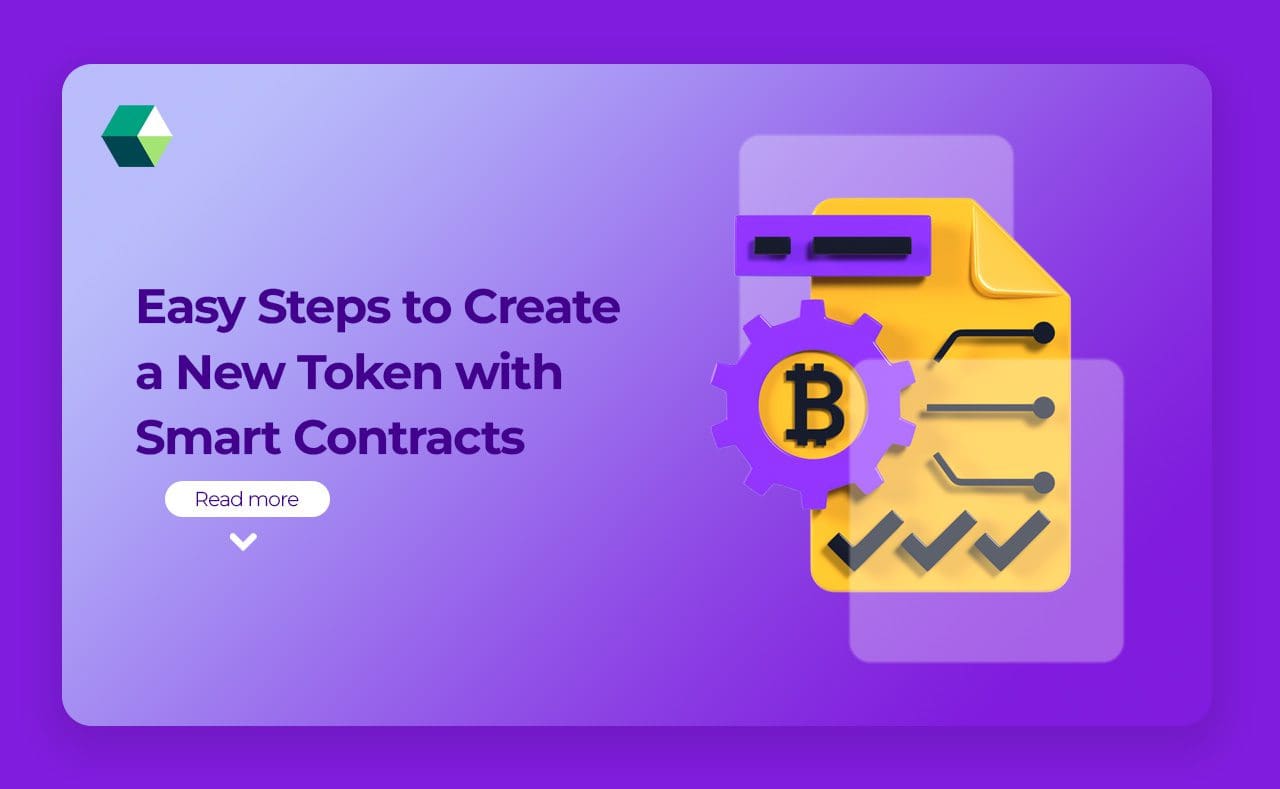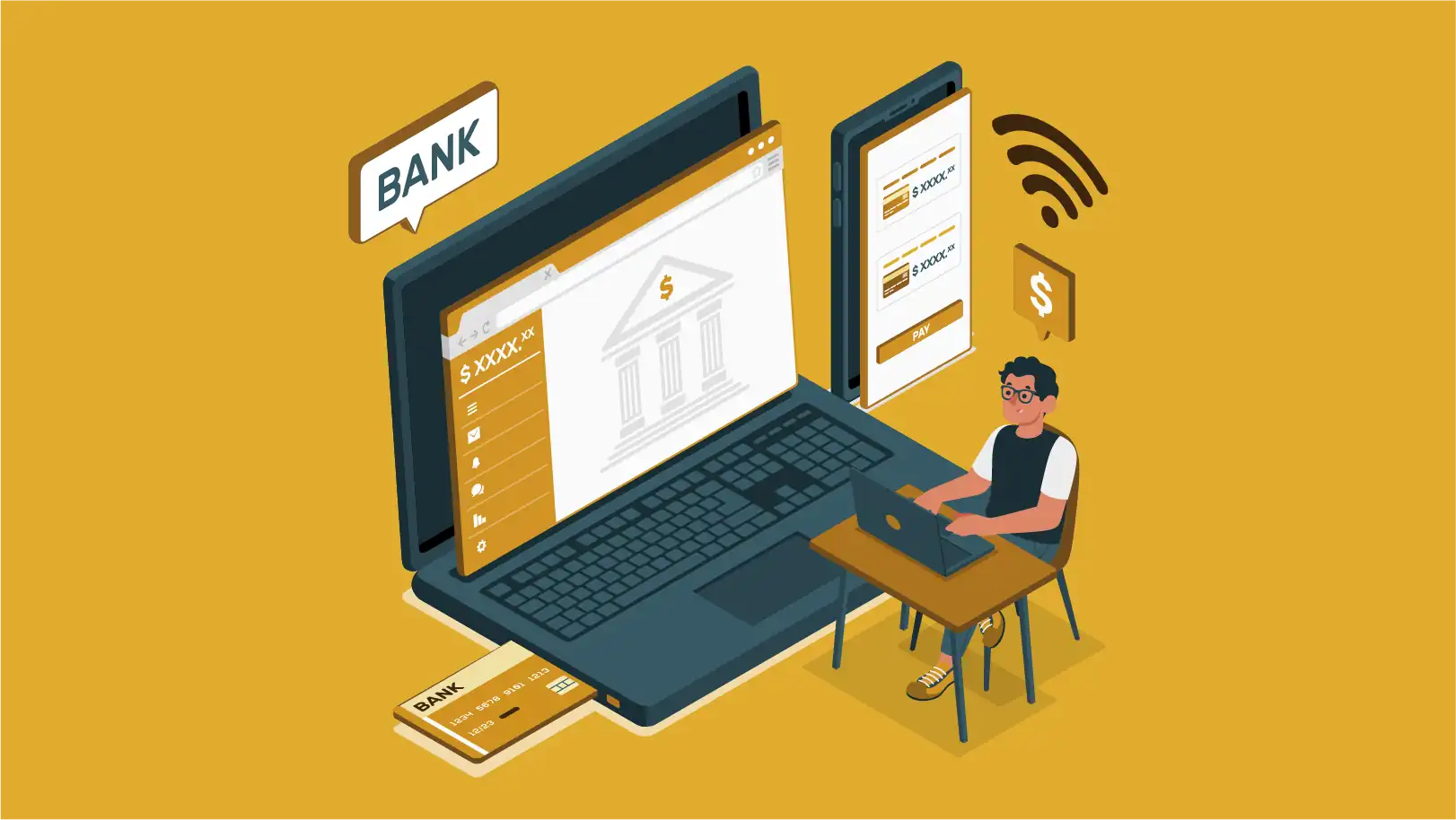
Creating a new token can seem complex, but it’s quite manageable when broken down into simple steps. This guide will walk you through creating a token using smart contracts, focusing on Smart Contract Development, Smart Contract Developers, Smart Contract Development Services, and Smart Contract Development Companies.
What is a Token Smart Contract?
A Token Smart Contract is a type of Self-Executing Contract with the rules and regulations of a token written directly into code. This code runs on a blockchain, such as Ethereum, and governs how the token functions. Essentially, it automates the creation, distribution, and management of tokens without the need for a central authority. Token smart contracts define essential aspects of a token, including its supply, how it can be transferred, and the rules for its use. This ensures that the token operates according to predefined rules, offering transparency and security.
Smart Contract Development Services Help with Token Creation
Smart Contract Development Services are crucial for creating and managing tokens. These services involve designing and coding smart contracts to meet specific requirements, ensuring they are secure and function as intended. Developers use programming languages like Solidity (for Ethereum) to write the code that defines the token’s properties and behaviors. They also conduct thorough testing to identify and fix any bugs or vulnerabilities. Smart Contract Development Services can help with various token types, including utility tokens, security tokens, and stablecoins, providing expertise to navigate the complexities of blockchain technology and ensure successful token deployment.
Simple Steps to Create a New Token Using Smart Contracts
Creating a new token on the blockchain using smart contracts involves a series of straightforward steps. Here’s a more detailed and user-friendly guide, including a sample code to help you understand the process better:
-
Define Token Specifications
Before you start coding, you need to decide on a few key details about your token
-
- Full Name This is the full name of your token, like “ExampleToken.”
-
- Symbol A short, unique identifier for your token, similar to a stock ticker, such as “EXM.”
-
- Total Supply The total number of tokens that will ever be created. For instance, you might set it to 1,000,000 tokens.
-
- Decimals This determines how divisible your token is. For example, 18 decimals mean that you can have very small fractions of the token.
-
-
Choose a Blockchain Platform
For this guide, we’ll use Ethereum, a popular platform for creating tokens. You will need tools such as Remix IDE, which is a web-based environment for writing and testing smart contracts, and MetaMask, a browser extension for managing Ethereum transactions.
-
Write the Smart Contract Code
Here’s a simple example of an ERC-20 token smart contract. ERC-20 is a standard used for creating fungible tokens on Ethereum:
// SPDX-License-Identifier: MIT pragma solidity ^0.8.0; import "@openzeppelin/contracts/token/ERC20/ERC20.sol"; contract ExampleToken is ERC20 { constructor(uint256 initialSupply) ERC20("ExampleToken", "EXM") { _mint(msg.sender, initialSupply); } }Breakdown of the Code:
-
- pragma solidity ^0.8.0; Specifies the version of Solidity that the contract is written in. Solidity is a programming language for writing smart contracts.
-
- import “@openzeppelin/contracts/token/ERC20/ERC20.sol”; This line imports the ERC-20 standard implementation from the OpenZeppelin library. OpenZeppelin provides secure and reliable smart contract code.
-
- contract ExampleToken is ERC20 { … } This line declares a new contract named ExampleToken that inherits from the ERC-20 standard.
-
- constructor(uint256 initialSupply) This is the constructor function, which is executed when the contract is deployed. It sets the token’s name, symbol, and mints the initial supply of tokens to the address that deploys the contract.
-
-
Test the Smart Contract
Testing is an essential step to ensure your token works as expected: Open Remix IDE, a user-friendly interface for coding and testing smart contracts. Name it ExampleToken.sol and paste the code into this file. Go to the “Solidity Compiler” tab, choose the right compiler version, and click “Compile ExampleToken.sol.” Use the “Deploy Run Transactions” tab. Select “Injected Web3” as the environment, which connects to MetaMask, and deploy your contract on a test network like Rinkeby. This step helps you test the contract without using real Ether.
-
Deploy the Contract on Mainnet
Once your token works correctly on the test network, you can deploy it to the Ethereum Mainnet: Change your MetaMask network to Ethereum Mainnet. Use Remix or another deployment tool to deploy the contract to the Mainnet. This action makes your token live and available for real transactions.
-
Distribute Tokens
After deployment, you can distribute tokens to users: You can send tokens to addresses based on your plan, such as to early investors or through a public sale. Keep an eye on the token’s performance and handle any issues that come up. You can also add features or make updates as needed.
Why Use Smart Contracts for Tokens?
Smart contracts are essential for creating tokens because they automate and enforce the rules for how tokens are issued and transferred. Essentially, a smart contract is a piece of computer code that lives on the blockchain. It handles all the operations related to your token, like sending it from one person to another, ensuring that the total supply doesn’t exceed the set limit, and managing balances.
Using Smart Contracts Development for tokens offers several benefits. They are secure because once deployed, the code can’t be changed, preventing fraud or unauthorized changes. Smart contracts are also transparent, meaning everyone can see the rules and transactions, which builds trust. Additionally, they automate processes, so transactions are handled quickly and accurately without needing intermediaries. This efficiency reduces costs and speeds up operations, making the entire process smoother and more reliable.
Examples of Token Smart Contracts
Here’s a more detailed explanation of different token smart contracts, avoiding code snippets but still covering the essential aspects:
-
ERC-20 Token Contract
ERC-20 is a popular standard for creating fungible tokens on the Ethereum blockchain. Fungible tokens are those where each unit is identical and can be exchanged on a one-to-one basis, like traditional currencies. To create tokens that are interchangeable and can be used for various purposes such as payments, rewards, or as part of a larger dApp Development project or Decentralized Application (dApp).
-
ERC-721 Token Contract
ERC-721 is a standard for creating non-fungible tokens (NFTs). Unlike fungible tokens, each NFT is unique and cannot be exchanged on a one-to-one basis with another NFT. This makes them ideal for digital art, collectibles, and other unique assets. To create unique tokens where each token has distinct attributes and value. Each NFT represents a specific asset, like a piece of digital artwork or a virtual item in a game.
-
ERC-1155 Token Contract
ERC-1155 is a multi-token standard that allows for the creation of both fungible and non-fungible tokens within a single contract. This flexibility is useful for projects that need to manage different types of tokens, such as both currency and unique items. To manage a diverse range of token types from a single smart contract, simplifying the process and reducing the cost of managing multiple tokens.
-
Custom Token Contract with Additional Features
Some projects may require tokens with special features beyond what standard contracts offer. For example, you might want a token that can be minted or burned by certain users or has other custom functionalities. To provide additional control or flexibility that standard token contracts do not offer. This could include features like the ability to mint new tokens, burn existing ones, or have administrative controls.
Why Choose Nadcab Labs for Your Token Smart Contract?
Nadcab Labs is an excellent choice for developing your Token Smart Contract due to its extensive experience and expertise in blockchain technology. Their team of skilled developers has a deep understanding of smart contract programming and can create custom solutions tailored to your specific needs. They offer comprehensive services, from designing and coding smart contracts to testing and deployment, ensuring that your token functions perfectly and securely. Nadcab Labs uses best practices and follows industry standards to create robust and reliable smart contracts. They conduct thorough testing to identify and resolve any issues before deployment, minimizing the risk of vulnerabilities. Their commitment to innovation means that you will benefit from the latest advancements in blockchain technology, making your token competitive and effective.
Additionally, Nadcab Labs provides ongoing support and maintenance, helping you manage and update your smart contract as needed. Their focus on customer satisfaction and transparency ensures that you receive high-quality service throughout the development process.In summary, choosing Nadcab Labs for your token smart contract means leveraging their expertise to create a secure, efficient, and innovative token that meets your goals and aligns with your vision.






